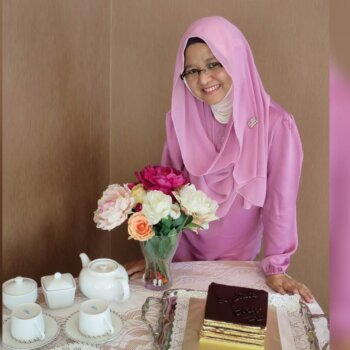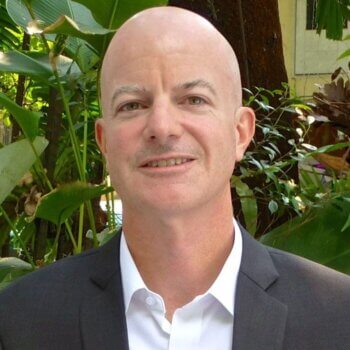With the abject rise in the popularity of Feng Shui, the majority of followers fall into the group of Believers, Sceptics and the In-Betweeners. The Believers, as the name suggests, are die-hard followers and even practitioners of Feng Shui. They are those who have claimed to have seen the results of what Feng Shui can do for their lives and will totally immerse into studying all the methodologies and teachings of Feng Shui. Many Believers also end up becoming Feng Shui consultants and practitioners themselves. The Sceptics are generally those who have dipped their toes into the world of Feng Shui and have found very little useful results from it. They, therefore, think that it is merely a bunch of old wives’ tales made up to scare people. Those who considered the In-Betweeners neither believe in Feng Shui nor are they ready to just ignore the potency of Feng Shui yet. In fact, you might say that an In-Betweener has the potential to switch sides once they find out if Feng Shui works for them or not.
This divergent of groups only emphasizes the fact is that like many metaphysical sciences, Feng Shui is often misperceived as merely theoretical because its methodology has never scientifically proven. The argument of the effectiveness of Feng Shui is often perpetuated by a feeling of misconception surrounding the practice. In all fairness, Feng Shui is no different than other traditional studies because at its heart, it still is a practical subject that is meant to be studied and practiced on. Thus, Feng Shui has taken on many meanings and connotations where some saying that Feng Shui is an art of placement and others claiming that is about living in harmony with the immediate environment.
It seems that everyone today has a different definition of what Feng Shui is all about – even the professional practitioners and consultants themselves seem to have different definitions. Even authors writing on this subject end up having varying opinions of what Feng Shui is. So, is Feng Shui just an ancient art form of moving things around to promote a better flow of energy? Would that even be considered a scientific method? This lack of understanding and support from the mainstream has prompted the teaching and understanding of Feng Shui to lose its respectability and render it just a mere game of sorts.
So, which definition should you follow when trying to understand what Feng Shui is and what it is not? For starters, it is certainly not decorating your home and office to the ceiling with every ornament that promises to bring you luck and prosperity. The obsession and belief of object placements and items only recently became a popular teaching in the early 90’s and has been unfortunately passed off as genuine Feng Shui. Even if you had seen such wealth or prosperity generating objects in the homes of a wealthy person, this person would have had these objects not based on a Feng Shui belief but as part of their Chinese culture.
Feng Shui is also not about interior design because the furniture you buy and the decorations you put up around your residence do not constitute a part of Feng Shui studies. Choosing what furniture best suits your home and what colour best matches your style and personality are best left to an interior designer and not a Feng Shui consultant. These two areas are complete opposites of each other and involve expertise of different variations and studies. Another definition that would disappoint many Feng Shui Believers is that Feng Shui is not about living in harmony with nature either. In fact, if a person claims that they wish to live closer to harmony and nature, their best option is to move into the forest or be as close to nature as possible.
While it is true that Feng Shui teaches one how to harmonize with the land, the question now is what is it exactly that we are trying to harmonize in the first place? To best understand the true nature of what Feng Shui really is, we have to refer to the ancient testaments and manuscripts. In the study of Chinese Metaphysics – also known as the Chinese Five Arts or Wu Shu 五术, Feng Shui is classified under the study of the living environment. These Five Arts are Mountain, Medical, Divination, Destiny and Physiognomy (the study and observation of appearances through formulas and calculations in order to access the potential and outcome of a person and their living environment).
Feng Shui is therefore the art of studying a person and their living environment. This metaphysical study teaches one how to tap into the Qi (cosmic energies) of the living environment to help bring about better results and prospects for a person’s many endeavors in their life. This study of Qi energy has become so prevalent in today’s society that it is even recognized by Western medical doctors who extol its benefits in acupuncture treatments. Therefore, Feng Shui is all about studying and understanding Qi in the living environment and how to harness it for the better. Not only will it prove beneficial to harness it but we can also use it to help specific goals in our everyday lives.
Because Qi is a natural occurrence from the living environment, it is rarely generated by man-made objects like decorative items like mirrors. Another rarely discussed “secret” of Feng Shui is that it is also a form of forecasting method and as such, can be calculated. The practice of Feng Shui is often ignored or forgotten due to the fact not many Feng Shui practitioners today know how to do it properly. In the end, the wisest approach in understanding Feng Shui would be to study it with an open mind and have a clear goal when practicing it. Ask yourself what are you intentions when studying Feng Shui and what do you intend to achieve by applying it in your life?
But do remember that Feng Shui is not a miracle cure that solves all your personal problems. Sometimes, it is just about your destiny and how the cosmic factors are in play that influences your lives. What defines Feng Shui is the types of Qi that will affect one’s living environment and how to prepare oneself to face any situation, for better or for worse.





























